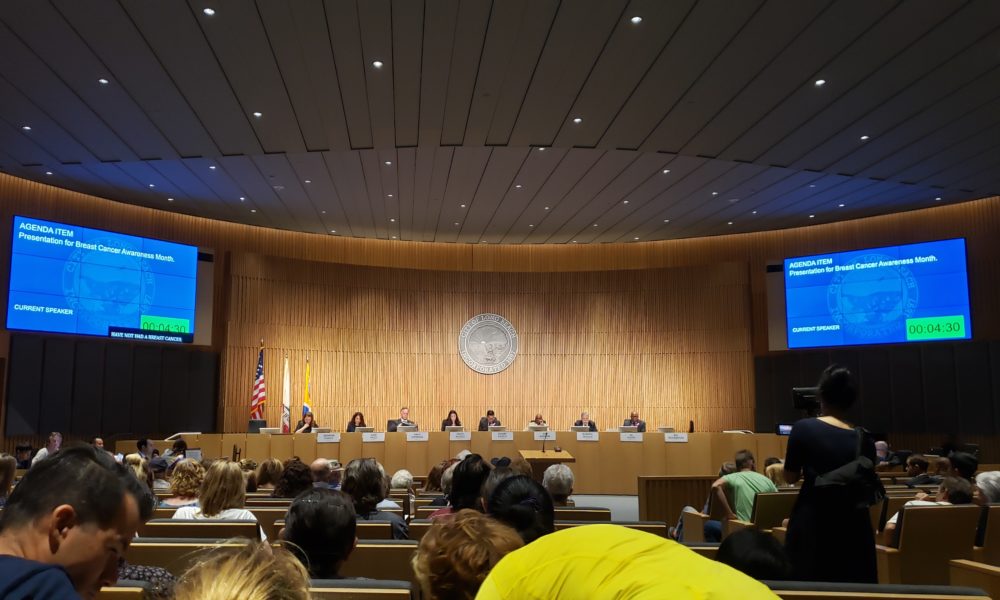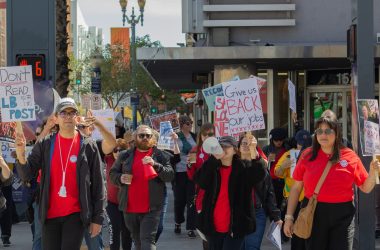The Long Beach City Council voted 8-0 Tuesday evening in favor of extending the Open Streets Initiative that would expand parklets and parking lot permits for businesses through 2020.
According to the measure, some participating businesses may be able to keep these parklets, or sidewalk extensions, up-and-running for outdoor operations as the city is looking to convert the temporary permits to a permanent status.
In accordance with the initiative, the city previously approved the street closure of Pine Avenue from First Street to Third Street in Downtown Long Beach to begin Aug. 14. This closure is set to remain in place for the foreseeable future.
Initially set to last until Oct. 31, the implementation allows for public areas to be transformed into “safe spaces for physically distanced activity,” and businesses can request parklet spaces at no cost via the city’s website.
“We should really always stay open-minded in terms of barbershops, hair salons, bars [and having] alternative ways for them to conduct business over the course of the next year,” Councilmember Rex Richardson said. “I support this and look forward to seeing this continued implementation.”
According to the program’s website, the Open Streets Initiative considers neighborhood streets in addition to business areas and encourages residential blocks to have reduced traffic and physically distanced walking, biking and skating by implementing barricades.
The neighborhood open streets program would not limit street access for residents, delivery drivers or emergency responders and on-street parking remains unaffected.
However, street sweepers and other public works vehicles would still have access to these partially closed streets, and any preexisting street parking restrictions remain in place.
The council voted unanimously to establish an Interim Motel Conversion Ordinance that would allow participating motels to act as transitional housing for individuals experiencing homelessness.
Proposed by Christopher Koontz, deputy director of Long Beach Development Services, the program addresses the issue of an “oversupply of motels in the city but an undersupply of housing, leading to a housing crisis.”
“This program would allow a streamline conversion from motel to supportive housing for a period of time with on-site social services,” Koontz said.
Under the program, motels that seem to be hotspots for criminal activity, deemed “nuisance motels,” can be converted to temporary places of residence for those experiencing housing insecurity.
“I think now is the perfect time to leverage some of the state programs and figure out how we can address some nuisance motels in our city by converting them into something that actually helps us solve our public policy challenges around housing availability in our community,” Richardson said. “I’m really glad to see this and obviously support it.”
Discussed back in April, the program would allow for participating motels to partner with local agencies that work directly to help members of the community facing homelessness.
According to the Long Beach Press Telegram, the council voted on Dec. 17, 2019 to form a team of city staff to monitor these nuisance motels and their efforts to reduce crime.
Including members of Long Beach Development Services and the Long Beach Health Department, the team was given the authority to require “owners of a hotel or motel that has been flagged to abide by any of nearly two dozen security, health or safety measures,” the Press Telegram reported.
Councilmember Suzie Price voiced her support for the ordinance and said she looks forward to nuisance motels in her district to be considered for the program.
The next city council meeting is set to occur Tuesday, Sept. 22 via teleconference.




